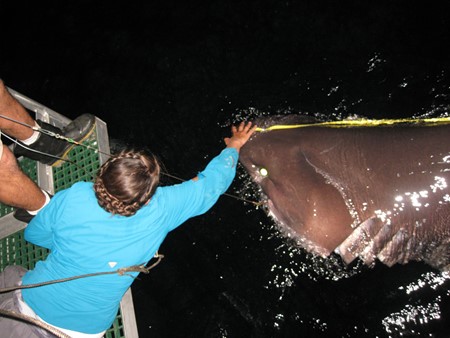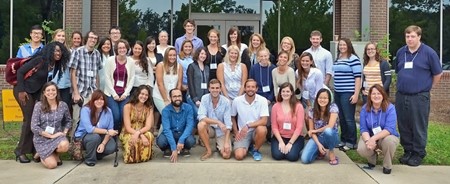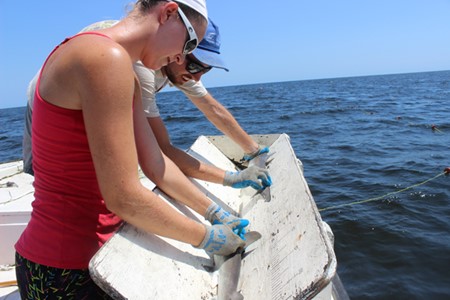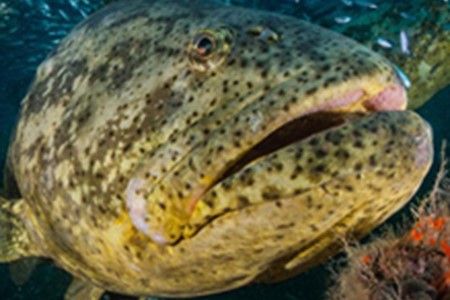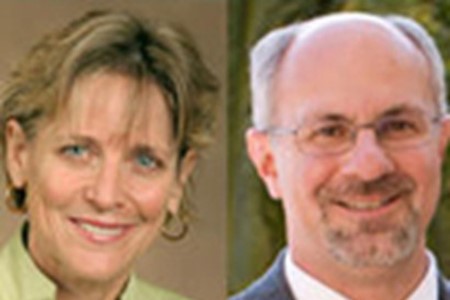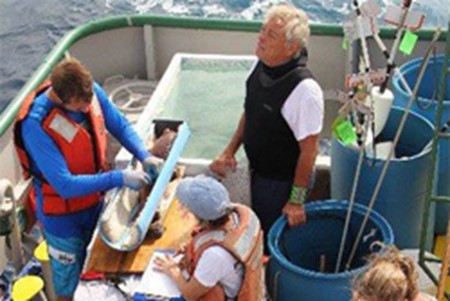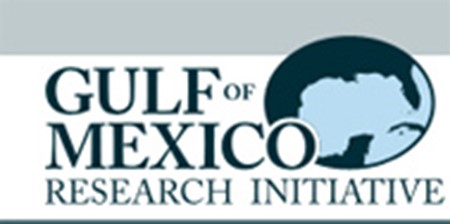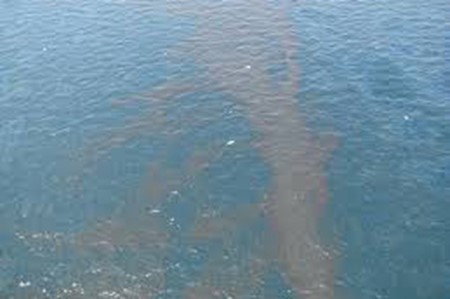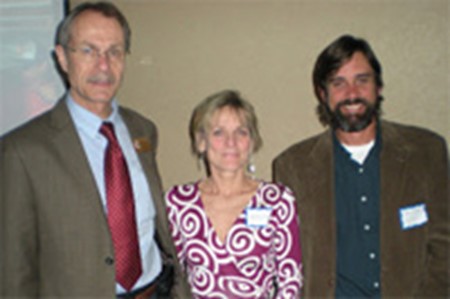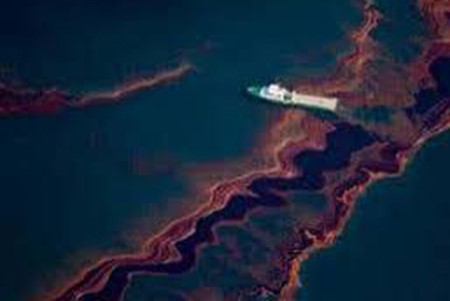Dive into the cold, mysterious world of sharks and learn more about the bluntnose six-gill shark and Dr. Grubbs' research on oil toxicity in sharks and other marine species. See FSUCML graduate student, Jo Imhoff, measuring a six-gill shark.
Scientists Help Students Tackle the Hard Stuff (Gulf of Mexico Research Initiative)
More than 660 graduate students are members of GoMRI-funded research teams working to understand impacts from the Deepwater Horizon oil spill and improve future response. Eric Chassignet, director of the Deep-C consortium led by Florida State University, said that one of the most exciting aspects of receiving GoMRI support has been the opportunity to mentor students and involve them in cutting-edge Gulf research. He added, “They are going to be the next generation of scientists, the movers and shakers ten years from now.” With that in mind, Deep-C decided to give students their own “prime time” conference experience.

